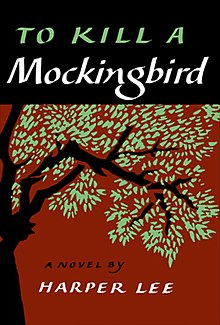Response to Government Censorship Since 1945
Who Controls Morality in Literature
Censorship has been around for a very long time. One of the main themes that people try to censor is sexual content. In this article, Downs talks about “the paradox of eroticism” very early on. This is the idea that humans will both seek out sexual content, while simultaneously seeking to control and censor it. We deem it as bad, allowing the government to control it based on religious ideology. Early on, the laws about censorship were very vague, encouraging artists of all kinds to steer away from anything controversial. Anything sexual was controversial.
The complainant in the case we are researching cites extensively in her complaint form about the sexual content in Glass. Included in the list of themes she dislikes is “Sex- multiple-partner (even in the same bed).” She does complain about the drug abuse in the book, but I think the distinction she makes with this is very interesting. In the scene that she is talking about, Kristina was living with, and sleeping with, her boyfriend’s cousin. When Trey comes home, he and Kristina have (consensual?) sex while his cousin is asleep. The point Ellen Hopkins is trying to make, is the degree at which drug addiction can lead your life off track. She is critical of this behavior, and it is not meant to be erotic in the novel.
We’re Still Having the Same Conversations
In 1957, the U.S. government was faced with officially making a decision involving the first amendment and the censorship of obscenity. In the case Roth v. The United States, The Supreme Court ruled that:
Justice Brennan held that the First Amendment protects all literature about sex possessing literary or intellectual merit but not obscenity, which is “prurient according to contemporary community standards”—appealing to sex for sex’s sake.
Downs, page 140
While this is no longer the standard for how literature is censored, this type of language is still used today. The committee in Norman decided that Glass had enough literary merit to overcome the parent’s issues with the sexual content. While they were able to state that they thought content about drug abuse was positive for the students reading the book, they phrased the issue of the sexual content as:
The powerful message on teen drug addiction far outweighs the concern about the sexual content.
Carla Kimberling
This really interests me. We still consider sexual content to be widely inappropriate, but the committee allowed it to slide because of the intellectual merit of the book itself. In a way, they are avoiding addressing the issue of obscenity at all. Despite the fact that on the committee’s report, they state that as the main complaint of the book.
In her original complaint form, the parent outlined many areas of concern with Glass that were not about the sexual content. This is just an interesting section, and there are multiple distinctions made about it throughout the case that I was reminded of as I read the article again.


Recent Comments